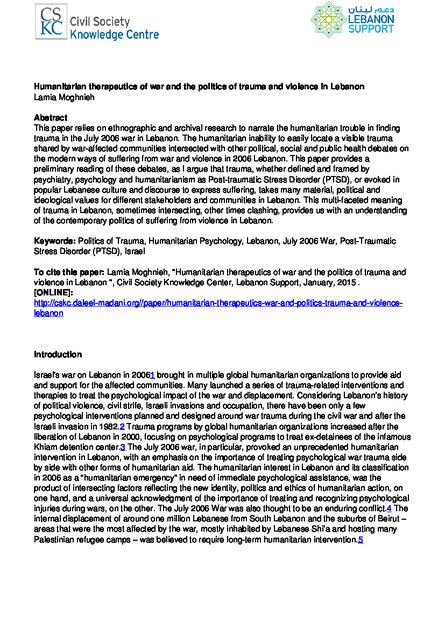
This paper relies on ethnographic and archival research to narrate the humanitarian trouble in finding trauma in the July 2006 war in Lebanon. The humanitarian inability to easily locate a visible trauma shared by war-affected communities intersected with other political, social and public health debates on the modern ways of suffering from war and violence in 2006 Lebanon. This paper provides a preliminary reading of these debates, as I argue that trauma, whether defined and framed by psychiatry, psychology and humanitarianism as Post-traumatic Stress Disorder (PTSD), or evoked in popular Lebanese culture and discourse to express suffering, takes many material, political and ideological values for different stakeholders and communities in Lebanon. This multi-faceted meaning of trauma in Lebanon, sometimes intersecting, other times clashing, provides us with an understanding of the contemporary politics of suffering from violence in Lebanon.